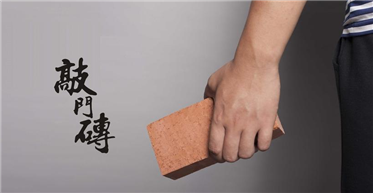
 环球教育北京学校
环球教育北京学校

翻看ChinaDaily,看到了这么一篇文章“Is it necessary to get a master’s degree?”2020-12-26。从文章发布的日期来看,正好是考研当天。同样的话题,我相信很多烤鸭们也应该思考过。无论答案是肯定也好,还是否定也罢。我们一同看看不同背景的人们对于读研的认识。

Editor's note: According to the Ministry of Education, about 3.77 million candidates will take the annual entrance exam for postgraduate studies between Dec 26 and 28. Amid fierce competition, a college degree is no longer a guarantee of a better job and life. More college graduates in China have chosen to pursue higher degrees to improve their employment prospects and income, but is a master's degree a guarantee of success? Readers share their opinions.
Employment prospects:就业前景
编者言:其实编者没发表任何观点,只是抛出了这个问题。

第一位网友:cbcronin
As an American, I can only speak for the conditions here: Your chance of success rises if you have a degree. There is of course no guarantee of financial success, but on average: more education = more salary.
There are some skilled professions here that do quite well without college degrees: plumbers, mechanics, carpenters, and others, but they depend on the area/region they are in due to living expenses. But education opens doors that will forever remain shut without it.
On average:平均来说,大体来说,
在这位美国网友眼里,学历也是敲门砖。

第二位网友: SDIvester
I think most people are capable of learning without a degree. However, some jobs do need a good deal of education and possibly licensing. A license issued by a State or Federal government will show me they have the knowledge needed to do the job, with less on-the-job training.
On-the-job training:在职培训
这位网友的评论的确扎心了。说好的聊“读研”的问题,结果又扯到了“license”,相信绝大部分大学生都被“考证”这两个字支配过吧。不寒而栗啊。

第三位网友: johnandminjie
My answer is that it is not a necessity, but it certainly helps to have studied at the highest level possible if you have the opportunity, whatever your discipline.
Of course, not all of us have that opportunity, and there are many careers where one can still do well without a master’s degree, and quite a few that do not need a university education at all. The individual needs to research career information to see what potential employers expect.
这位网友的立场其实比较暧昧,“有机会就读”。但是何为“有机会”呢?寒窗数月,在考研大军中拼杀,奋勇向前。这算是有机会吗?拿着父母的一笔积蓄,与雅思肉搏数周,直奔海外。这算是有机会吗?
第四位网友: LUCY2013
I don't think so. In some cases, the higher degree you get the more difficult to get a satisfactory job. Sometimes experience is more important and a high degree doesn't indicate job capacity!
Job capacity: 工作能力
果不其然,得听听反方的声音。

第五位网友: Boilermaker21
I believe as China increases the wealth of its citizens, you will see even more students seek higher degrees. Over time, it will be an expectation for all employees, regardless of place of employment, to have a minimum of a master's degree. The job market is saturated with graduates of bachelor’s programs. The only way to differentiate oneself from the herd is to either have some amazing previous job experience or to have continued your education in a master's program or beyond.

Be saturated with:被……饱和的,充满了……,两个字可以概括这位网友的观点“内卷”。
第六位网友: CrawlingSnail
Postgraduate enrollment exam is long being viewed as the Gaokao V2.0, one can pursue an ideal universities through the exam and make themselves more competitive in the job market after graduation. At this moment, for some high paying jobs, such as research engineer, a mater degree is a necessity and precondition, in addition, a master degree is also laying foundation for further study, e.g a doctor degree. The fellow students who are taking exam at the moment are really hard, sometime exhausting over the year, they have to attend the regular courses daily, and spend extra time and energy to prepare the exam, best wishes for all of you, and good luck.
(英文原稿都是直接截取于www.chinadaily.com.cn网站,里面的个别语法错误未经修改)

这位网友直接把考研定义为高考2.0版,这个表述还真的比较贴切。
第七位网友: sfphoto
Instead of developing university education, China needs more technical institutes to train future workers in manufacturing, technology and service industries. These technical institutes should partner with industrial companies to give Chinese high-school graduates vocational training so they can start working in various technical jobs while learning from their work experience. Universities are too theoretical in their academic education which are too impractical to be useful to industrial companies.
Vocational training:职业培训,职业教育
这位网友呼吁国家应该重视职业教育。这恰好是雅思写作经常考察的范围之一。大家可以把这段话作为自己的论点和论据。但是,其实考研和职业教育几乎没有关系。因为当初高中毕业时选择职业教育的人,应该不会是考研大军的一员。

相信通读此文,大家肯定可以感受到在国内考研的严峻与压力。如此来看,雅思是不是变得可爱多了?
考研年年有,雅思周周在!


 相关文章推荐
相关文章推荐
雅思听力考试需要注意什么?
2024-12-16
雅思听力备考资料怎么选?
2024-12-16
什么是雅思精听和泛听,两者有什么区别?
2024-12-16
什么是雅思泛听,又应该听一些什么内容呢?
2024-12-13
雅思听力备考全攻略
2024-12-12
雅思口语“破解”素材来啦,刷到就是赚到!
2024-12-17
雅思口语备考技巧:3步搞定口语“心腹大患”
2024-12-17
如何拿到口语高分,以及在口语考试中需要注意什么问题?
2024-12-17
雅思口语考试一般多长时间?口语考试时要注意什么?
2024-05-06
雅思口语题型分别是什么?雅思口语培训机构应该怎么选择?
2024-05-06北京市海淀区环球雅思培训学校 版权所有 | 投诉热线:010-61043630
工作时间:9:00-18:00 | 投诉邮箱:tousu@pxjy.com
Copyright 1997-2026 gedu.org. All Right Reserved 京ICP备10036718号
全部课程、服务及教材面向18岁以上人群